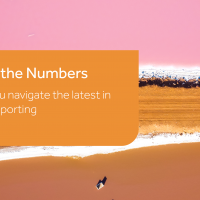Avoid delays in settlement: Apply for clearance certificates before the Christmas break
From 1 July 2016, all purchasers of real estate for more than $2 million in Australia (whether purchased from a resident or foreign resident vendor), must withhold 10% of the purchase price, unless the transaction is excluded from these rules (e.g. if the purchase price of the property is less than $2 million) or if the parties undertake certain actions before settlement date (e.g. a resident vendor obtains a clearance certificate).
This 10% withholding obligation inevitably leads to added compliance costs for both the purchaser and vendor of Australian real property.
In particular, if a property is due for settlement over the Christmas break, care should be taken to apply for such a clearance certificate early, especially because the ATO will be closed from 23 December 2016 to 3 January 2017, during which time clearance certificates are unlikely to be issued.
Transitional rules for GST on supply of digital products to consumers
As mentioned in an earlier Top Tax Tips, from 1 July 2017, Australian consumers importing intangible products and services (e.g. movies, music, apps, games, e-books, architectural or legal services or more) will have to pay GST on such imports (i.e. effectively such consumers will have to pay 10% more on such imports).
If a consumer were therefore to subscribe to a 12 month Netflix subscription on 1 December 2016, the 5 months of July, August, September, October and November 2017 will effectively cost 10% more than the previous 6 months (because of the imposition of GST from 1 July 2017 on such digital supplies).
Overseas travel for work: What records need to be kept?
In today’s interconnected world, people travel between different countries to perform their work. Is the cost of such travel tax deductible and what are the tax law requirements for substantiating such expenditure?
If an employee receives a travel allowance (i.e. an allowance paid by the person’s employer to cover outgoings relating to travel, accommodation, food, drink or other incidental expenses) and the amount claimed for food, drink or other incidental expenses does not exceed certain reasonable limits determined by the ATO each year, no written records/substantiation of such expenses are required. Substantiation is not necessary for overseas travel if the employee is away from his/her ordinary residence for 5 or less nights in a row.
People who are not employees must retain detailed records of their expenses whilst travelling for business.
If a person is away from their ordinary residence for 6 or more nights in a row, a travel diary must record the time, place and the length of each business activity during their business trip.
Note that regardless of the length of time the employee is overseas, costs of overseas accommodation must be substantiated.
Note also that an employer who pays for an employee’s overseas trip may be subject to fringe benefits tax if the employee cannot verify that the trip was for business purposes. Record keeping is therefore critical.
Be aware that the ATO is focussing on employees claiming tax deductions for work-related travel expenses. Further, the substantiation rules are more onerous on non-employees (business owners) travelling for business. If you are unsure about the substantiation rules in the tax law, please contact us.
A shift in the superannuation landscape
Legislation was recently enacted that will make drastic changes to the way our Superannuation System will operate from 1 July 2017. Please see our recent alert, “Superannuation Revamp: Are we throwing the baby out with the bathwater” here, to provide more information on how these changes may affect you.
How can Nexia Edwards Marshall help you?
For any questions or to discuss any of the above in relation to your personal situation, please contact Sarah McEachern or your Nexia Edwards Marshall Advisor.


